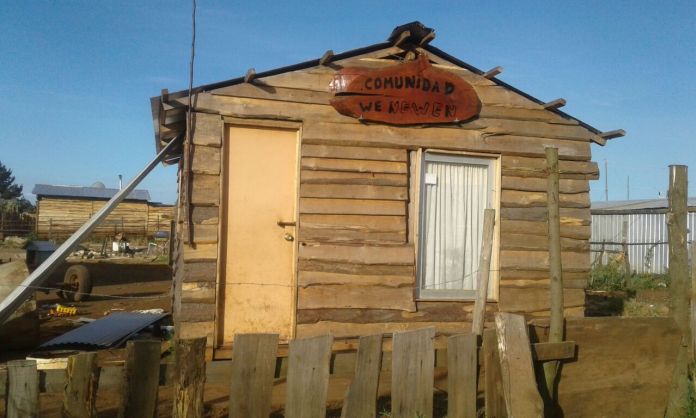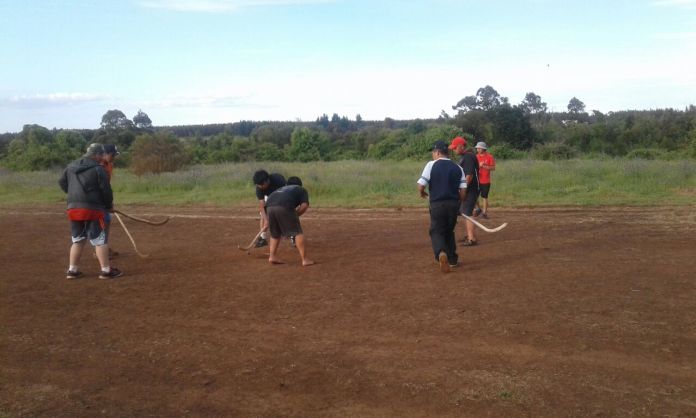We publish an english translation of an article of El Pueblo newspaper from Chile:
Building a collective life: Urban Community Wenewen de Collipulli
 In the urban sector of Collipulli, Ninth Region, the land seizure of the Wenewen Community is located in a property owned by Víctor Anguita. El Pueblo newspaper talked with Alexis Guajardo Levio and Zacarías Guajardo Martínez, members of the community, who told us how this process of construction and struggle has been.
In the urban sector of Collipulli, Ninth Region, the land seizure of the Wenewen Community is located in a property owned by Víctor Anguita. El Pueblo newspaper talked with Alexis Guajardo Levio and Zacarías Guajardo Martínez, members of the community, who told us how this process of construction and struggle has been.
This community groups both Mapuche families and non-Mapuche families and occupies 2.6 hectares where 36 houses have been built.
Although it began as a Committee of Relatives, the Mapuche vision was gaining ground and today they recognize as a community. They themselves point out that the Mapuche world view makes them see themselves as linked to the land and not just as if it were a dwelling. Alexis, a member of the community, tells us “we opened our minds to dream big, they lived here in Collipulli, their dreams and desires of all the people is to have their house, but we still got that because we did not want to go to the populations that are doing there, that are extremely small.”
Although the life of all the inhabitants is hard, the conditions of this Mapuche community, in particular, is even more difficult since they are discriminated against by the municipality. Thus, both the former mayor, Leopoldo Rosales, and the current one, Manuel Macaya, have refused to provide drinking water to the families and install electric lights, as they have done in the other intakes of the non-Mapuche sector. They know that there is discrimination against them and they have organized themselves to solve these essential problems autonomously.
Because of that, they organize themselves to fetch water from the tap and distribute it to families in a centralized manner, “to not create disorder”, explains Alexis. “They wish we were not there, we have been a stone in their shoe. So far we have not manifested, we have given the opportunity to dialogue, but we are getting tired because it has been a lot of discrimination.”
